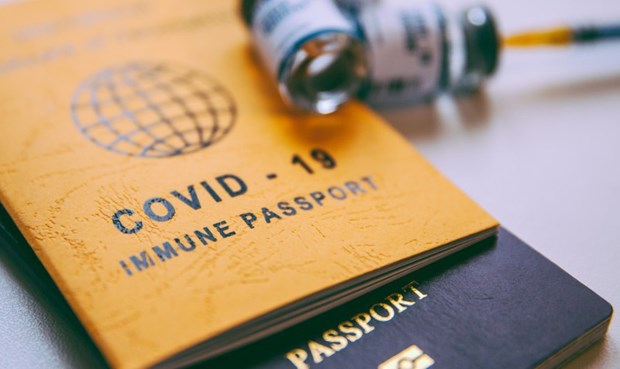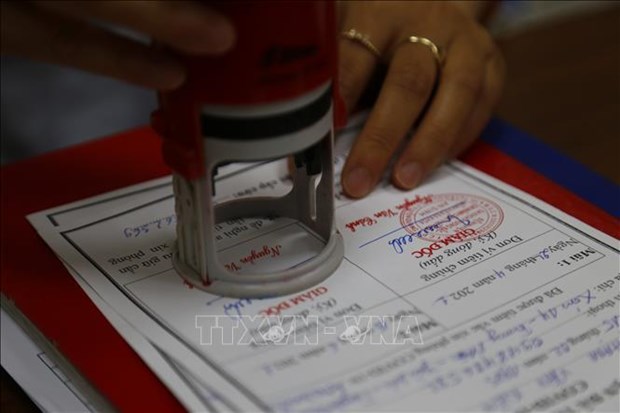
Tourism experts said if Vietnam succeeds in piloting the 'COVID-19 vaccine passport' policy, the sector can bounce back, welcoming back both domestic and foreign visitors.
Tourism experts said if Vietnam succeeds in piloting the ‘COVID-19 vaccine passport’ policy, the sector can bounce back, welcoming back both domestic and foreign visitors.
 |
| A vaccine passport (Source: The Regulatory Review) |
Associate Professor Dr Tran Dac Phu, senior advisor at the Public Health Emergency Operations Centre under the Health Ministry, said the passport is actually a certificate for a person having fully vaccinated against the disease following recommendations of vaccine producers or State management agencies.
Vietnam needs a strategy to recognise vaccine passports with other countries in bilateral or regional forms, he said, adding that in the immediate future, the mechanism will be piloted with a few countries posting high vaccination rates, and with vaccines of high immunogenicity, which are approved by reputable health organisations.
Nguyen Van Gia, an expert in tourist destination development, noted the application of vaccine passports has contributed to eradicating travel barriers and creating a driving force for socio-economic growth by reopening tourism. In Europe, Italy, Greece, Spain, Croatia and Iceland have opened their doors for tourists from the US.
Nguyen Tien Dat, Director of the AZA Travel Company, suggested piloting vaccine passports first in the domestic market before extending to foreign markets. He said the first destination can be Phu Quoc island and foreign visitors can be received via golf or resort tours.
Although many countries around the world have implemented vaccine passports, the World Health Organization (WHO) has yet to support the idea of issuing such passports to promote travel. The WHO believes that now is not the time to use vaccine passports, because there are still many unknowns related to the vaccination effectiveness in preventing COVID-19, while the supply of vaccines remains limited.
Deputy Minister of Health Tran Van Thuan said the mechanism will only be effective when herd immunity, is realised, meaning 70 percent of the population is vaccinated.
The Ministry of Health has set out three options for the implementation of the vaccine passport scheme that targets three groups – Vietnamese people stuck abroad; foreigners entering Vietnam to invest and do business; and international tourists.
Currently, the rate of vaccination against COVID-19 in Vietnam is to low for herd immunity. In such condition, the implementation of vaccine passports for foreign arrivals without tight monitoring is likely to cause an uncontrolled spreading of the disease in the community./.






